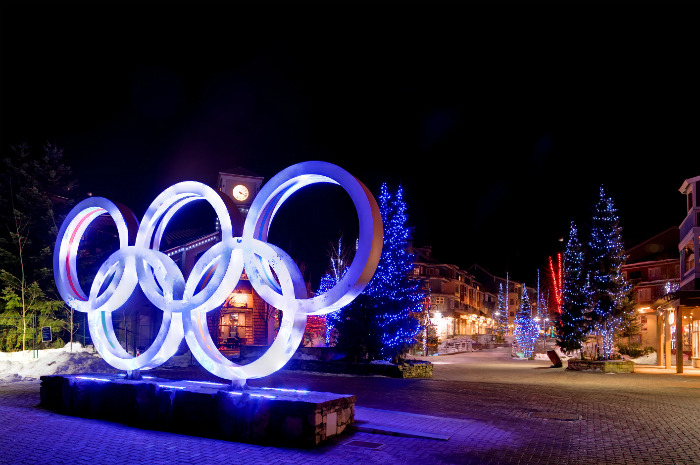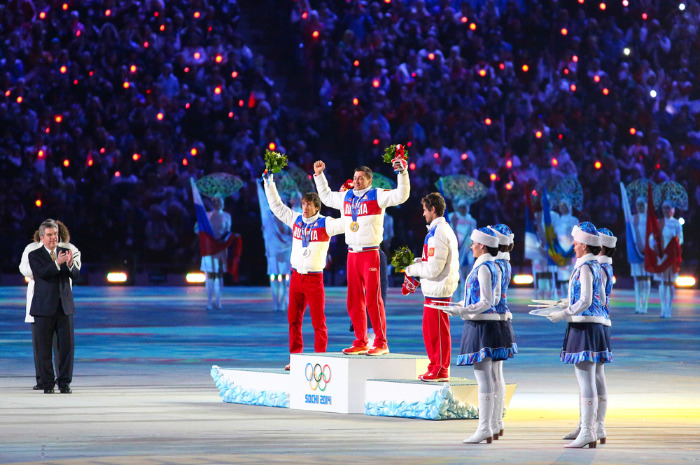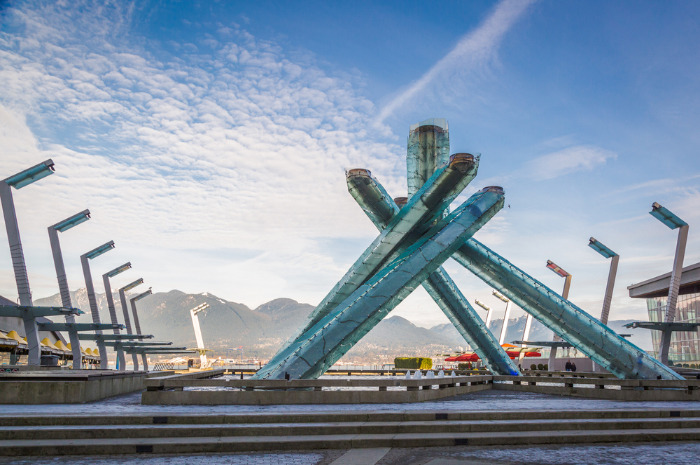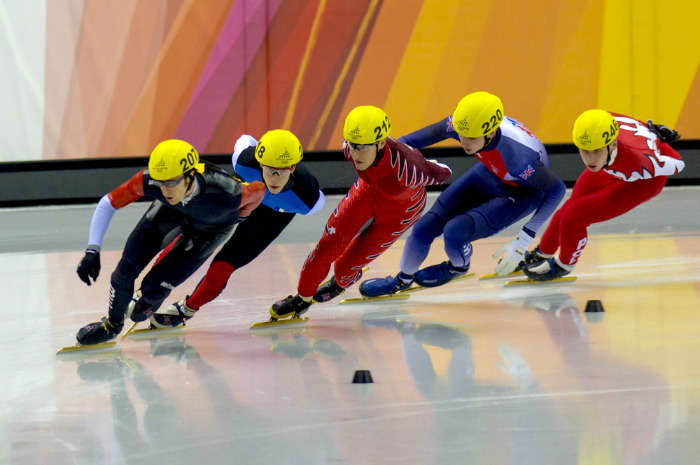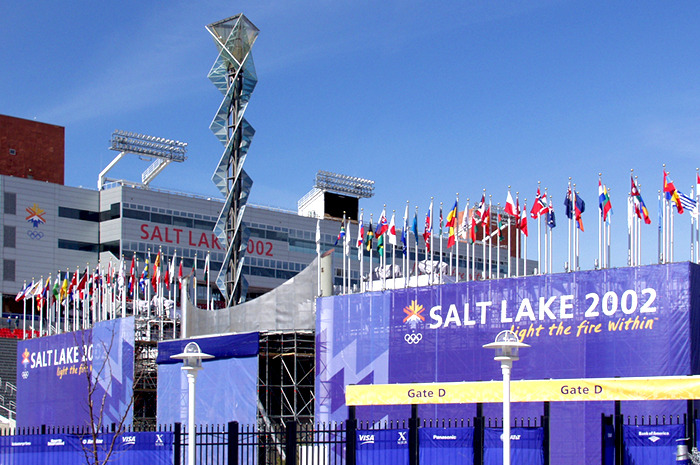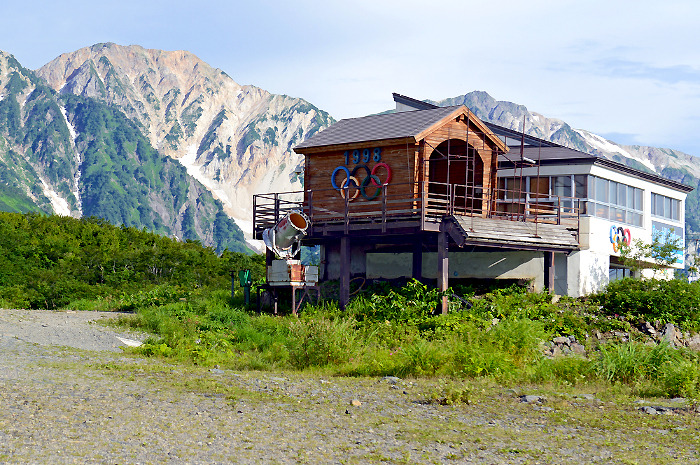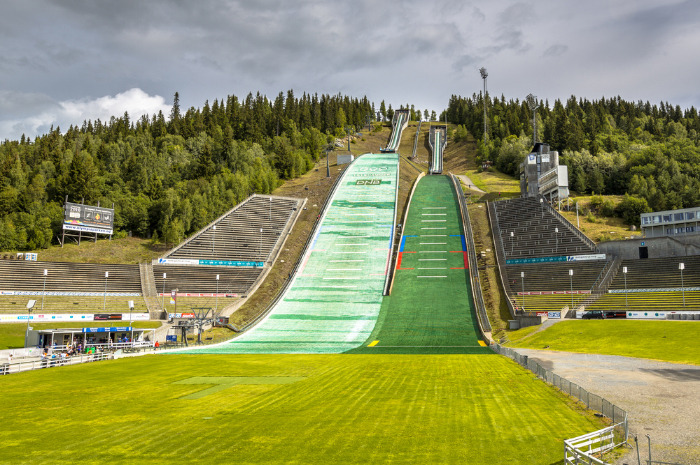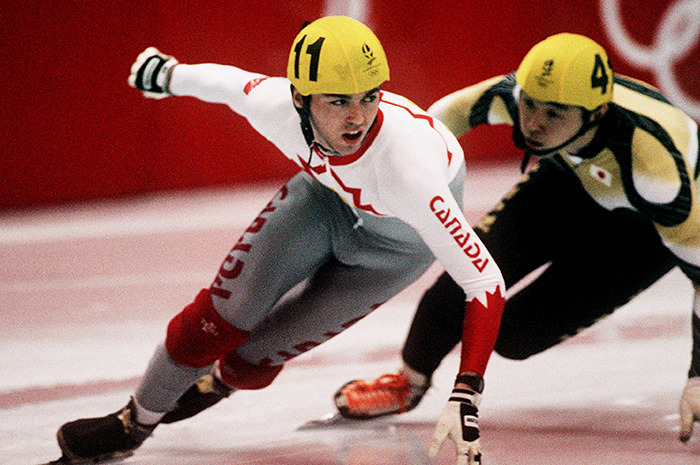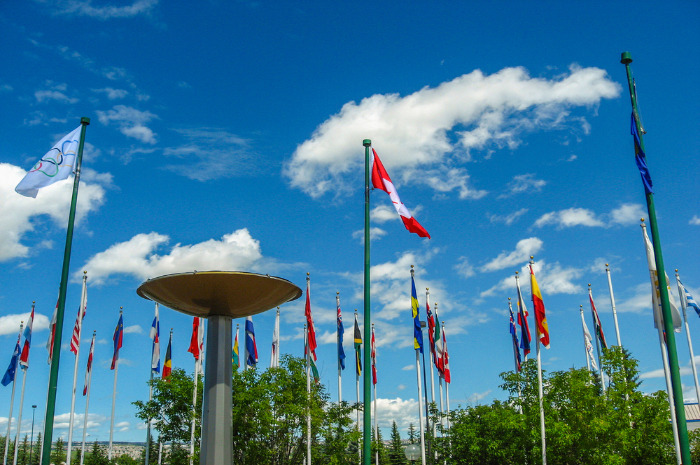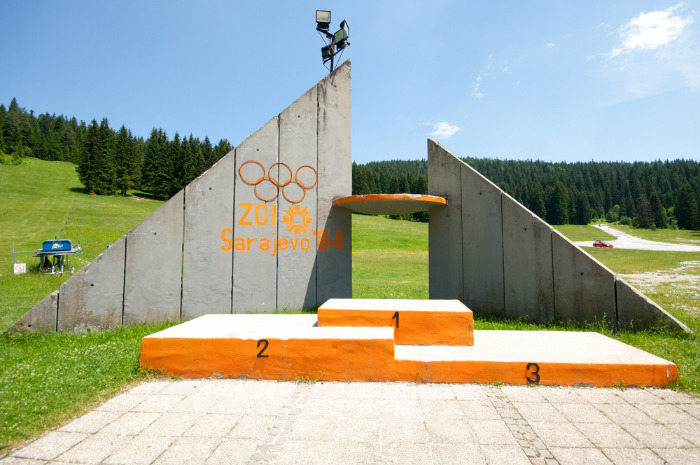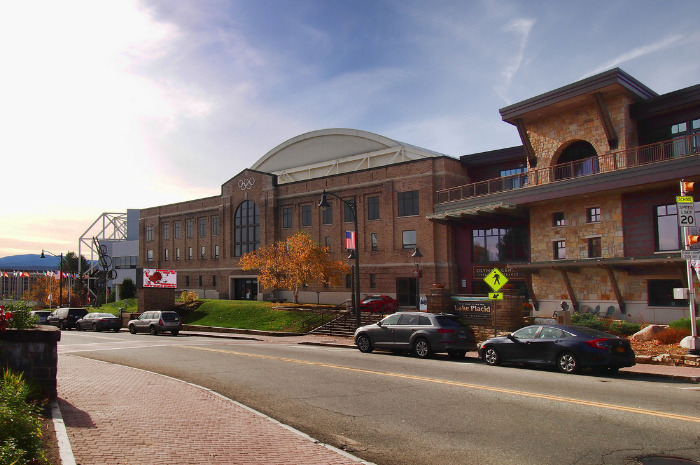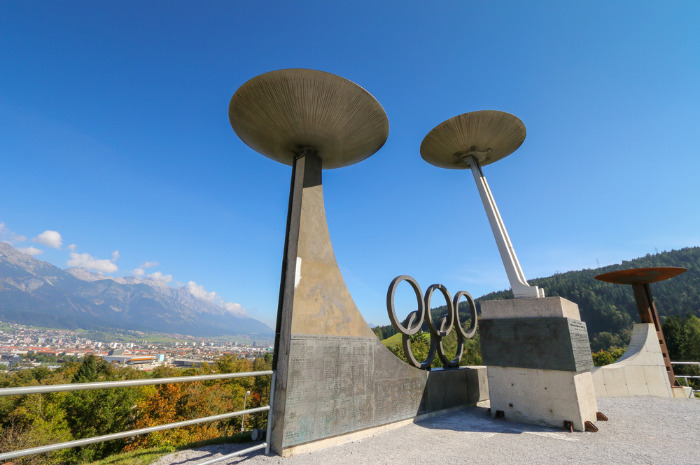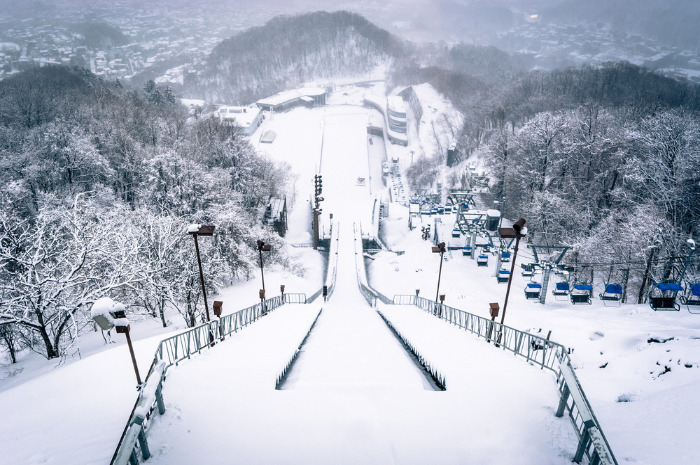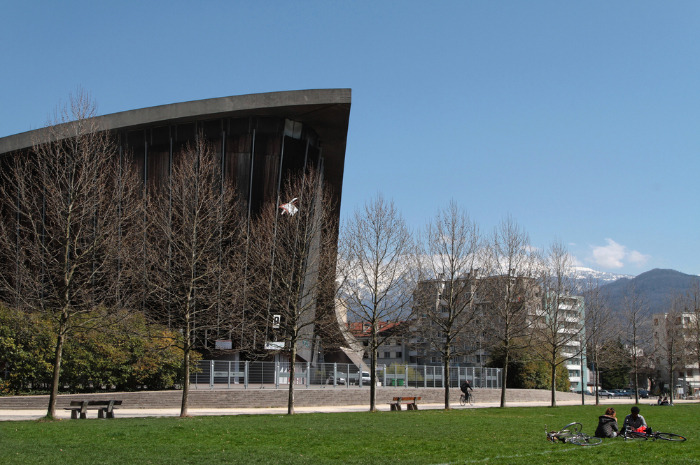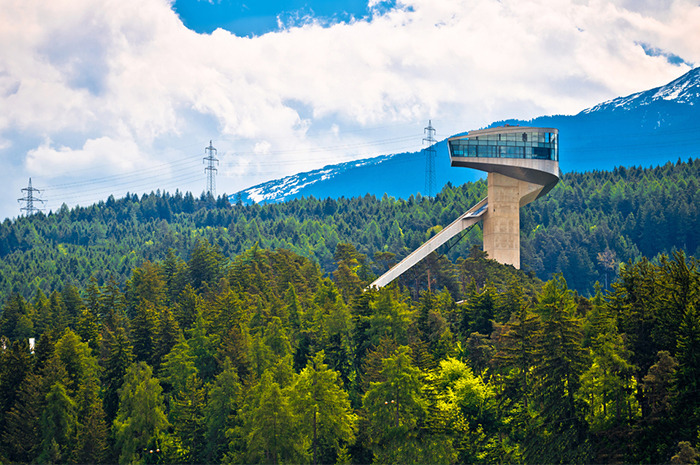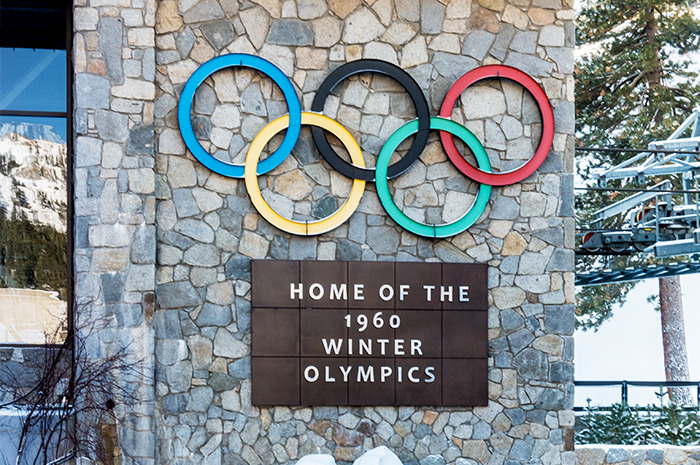Revisiting The Sites Of The 15 Past Winter Olympics
PyeongChang 2018 is ready and waiting to welcome the best of the best winter sports athletes. Its 12 state-of-the-art venues are all set to host the 102 medal events, and have been put through their paces at a total of 26 competition and non-competition test events. But before the best winter show of the year begins, it's worth taking a look at what has made past Olympics memorable.
Sochi, Russia 2014
A total of 98 events in 15 winter sport disciplines were held during the Games. Women's ski jumping made their debut on the Olympic program. Women in general made the headlines by breaking numerous records and making history. American Maddie Bowman became the first Olympic champion in women's ski halfpipe, while Tomoko Takeuchi from Japan is the first female athlete from Asia to win a medal in snowboarding after claiming silver in giant parallel slalom. Other historic milestones include the Swiss women's ice hockey team winning its first ever medal.
Vancouver, Canada 2010
The venues for the Vancouver 2010 Olympic and Paralympic Winter Games stretched over a 120-kilometre zone. The iconic Whistler area hosted Alpine skiing, cross-country skiing and biathlon, as well as Olympic Nordic combined, ski jumping, bobsleigh, luge and skeleton. Did you know that for the first time, Canada won gold in an "official" sport at an Olympic Games hosted at home. Famous skier Bode Miller won his very first Olympic gold after 14 years in the sport.
Turin, Italy 2006
Another record broken: With a population of more than 900,000, Turin became the largest city ever to host the Olympic Winter Games. A record 2,508 athletes from 80 National Olympic Committees (NOCs) competed and 26 NOCs took home medals, another record. Also, live video coverage of the Games was available on mobile phones for the first time. Another first: Albania, Madagascar and Ethiopia made a debut.
Salt Lake City, Utah 2002
The Games' program expanded to 78 events, and it introduced women's bobsleigh. Athletes from a record 18 NOCs earned gold medals, including first-ever golds for China and Australia. Even though the Salt Lake Games were in the news a lot due to a bribery scandal and refereeing controversies, the even still turned out to be one of the most successful Winter Olympiads in history with records set in broadcasting and marketing as well. More than 2 billion people watched more than 13 billion hours. The Games were also financially successful raising more money with fewer sponsors than any prior Olympic Games.
Nagano, Japan 1998
Snowboarding is getting more and more popular worldwide but it was in Nagano almost 20 years ago when it debuted as an official discipline. Curling returned to the Olympic Winter program, this time with a tournament for both men and women. This is also when Bulgaria had its first ever Winter Olympic gold medal – in biathlon. For the first time, the men's ice hockey tournament was opened to all professionals, and women's ice hockey was introduced to the Olympic program.
Lillehammer, Norway 1994
Global warming was a concern back then as well. Based on respect for the environment, these Games were baptized the "White-Green Games." Fourteen countries made their debut in the Winter Olympics, of which nine were former Soviet republics. This was also when qualifying rules got much stricter which made it much harder for teams from traditionally warm-weather countries to qualify. The Games took place during the Bosnian War, but the the Bosnia and Herzegovina bob team consisted of one Croatian, two Bosnians and a Serbian. This is still cited as the best possible example of the Olympic spirit at the worst of times.
Albertville, France 1992
The 1992 Albertville Olympic Games were the last Winter Games to be taking place in the same year as the Summer Games. Even though officially the Games were hosted by Albertville, just 18 of the 57 events were held there; nearby resorts hosted the rest. Freestyle skiing, short-track speed skating and women's biathlon debuted as official disciplines. Croatia and Slovenia participated for the first time as independent nations. Did you know that Toni Nieminen of Finland won the men's ski jump title to become, at 16, the youngest male winner of a winter event?
Calgary, Canada 1988
For the first time, the Winter Games extended to 16 days, including three weekends. The Alpine events were expanded from three to five with the inclusion of the super giant slalom and the Alpine combined. Fun fact: East Germany's Christa Rothenburger won the 1000 m speed skating title. Seven months later she won a silver medal in cycling to become the only athlete ever to win medals in the Winter and Summer Olympic Games in the same year.
Sarajevo, Bosnia-Herzegovina 1984
One of the most memorable wins is that if Italian Paoletta Magoni. She was one of three skiers to shock the world then. Just 19 at the time, racing in a fog, she won the gold medal in the women's slalom, the final skiing even of the competition, making her the first Italian woman ever to win an Olympic gold in alpine skiing. A side note: The bobsleigh track is said to be haunted. It was damaged during the bloody conflict in the region in the early 90's. The luge and bobsled track used as an artillery stronghold – and battlement and storage for their fighting and weapons. One makeshift cemetery is located in the middle of the Olympic arena.
Lake Placid, New York 1980
These Games will forever be known for The Miracle – The USA's hockey team – a patchwork squad of college men amateurs – did what was considered an unthinkable, considering how dominant the Soviet hockey team has been for decades. The Americans took the lead with two goals in the space of two minutes, and with 10 minutes left on the clock, the defense held firm. Final score was 4-3. Another notable moment has to do with artificial snow. Machines were used for the first time at the Olympic Games.
Innsbruck, Austria 1976
The 1976 Games had been awarded to Denver, but the people voted to prohibit public funds from being used to support the Games. Innsbruck offered to step in. Ice dancing debuted as a full medal discipline. In figure skating, American Terry Kubicka performed a back flip – the first time in the history of figure skating this dangerous move had been successfully performed. Another memorable image is that of was local hero Franz Klammer flying wildly down the downhill course, barely in control, to win a gold medal.
Sapporo, Hokkaidō, Japan 1972
Prior to these games, Japan had never won a gold medal in the Winter Olympics. These were the Games where a Spanish athlete won a gold medal for the very first time in the Winter Olympics. The honor went to 21-year-old "Paquito" Fernandez Ochoa, who won the slalom by a full second. Also, did you know that these Games are the last where a skier won the gold medal using all-wooden skis? Top-level cross-country skiers have been using skis made mostly of fiberglass synthetics since then.
Grenoble, France 1968
A lot of firsts: East and West Germany entered separately; IOC ordered drug and gender testing of competitors; Norway won the most medals, the first time a country other than the USSR had done so; and the Grenoble Games were also the first to be broadcast in color.
Innsbruck, Austria 1964
Mongolia, India and North Korea all made their debuts. Han Pil Hwa took silver in the women's 3,000m speed skating event, North Korea's first Olympic Winter medal. In the bobsleigh, athletes raced on a track that used artificial ice – another first. The Austrian army had carved 20,000 blocks of ice from the mountain side and transported them down to the luge and bobsleigh tracks. Also in the bobsleigh discipline, Italy's Eugenio Monti helped British duo Tony Nash and Robin Dixon win gold when he loaned them a replacement axle bolt. He was awarded the first De Coubertin Medal for sportsmanship.
Squaw Valley, California 1960
This is when the ideal of "instant replay" was born. Officials were unsure whether a skier had missed a gate and asked CBS-TV if they could review a videotape of the race. These were the only Games in which bobsleigh has not been included. The Organizing Committee refused to build a bobsleigh run because only nine nations said they would participate. Men's biathlon and women's speed skating made their Olympic debuts.
